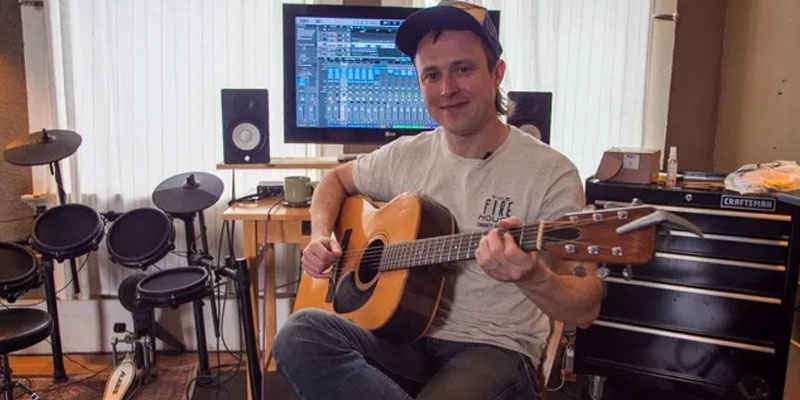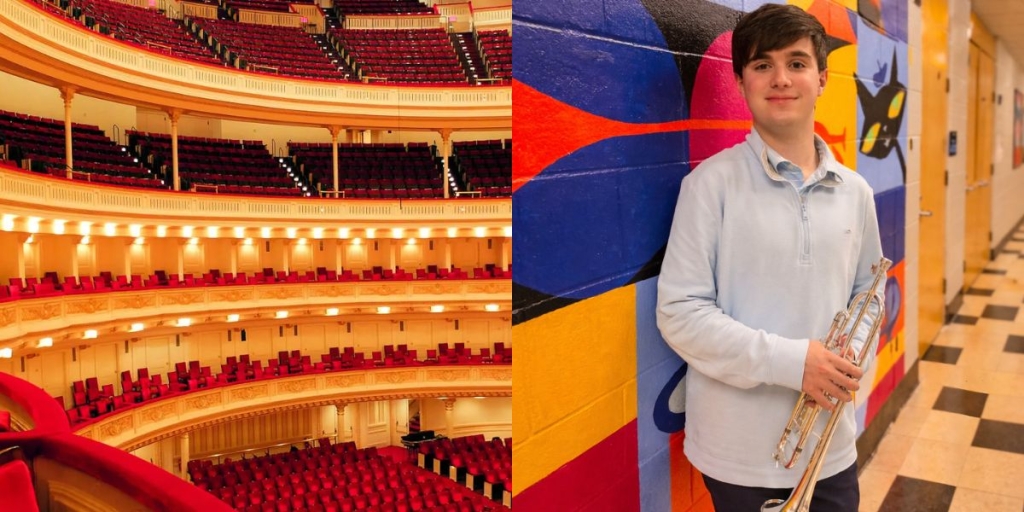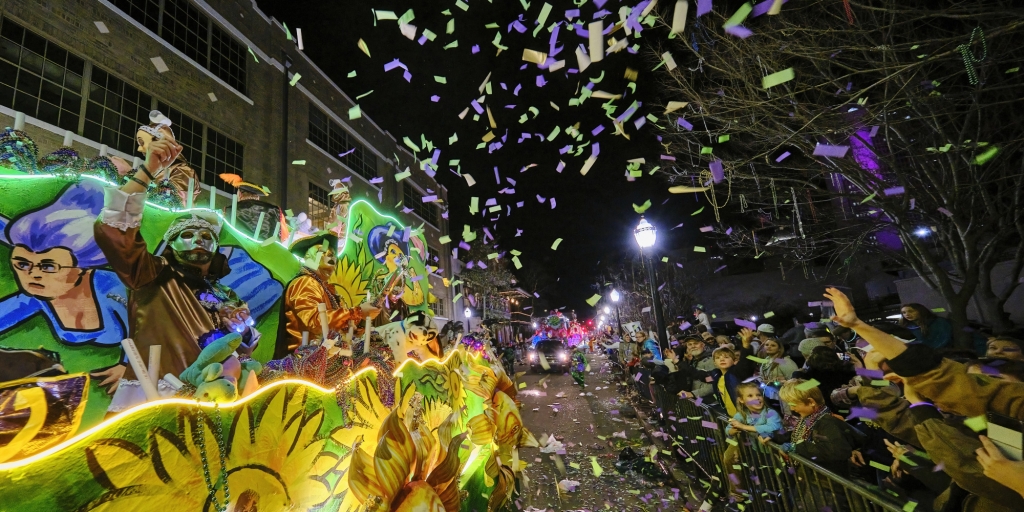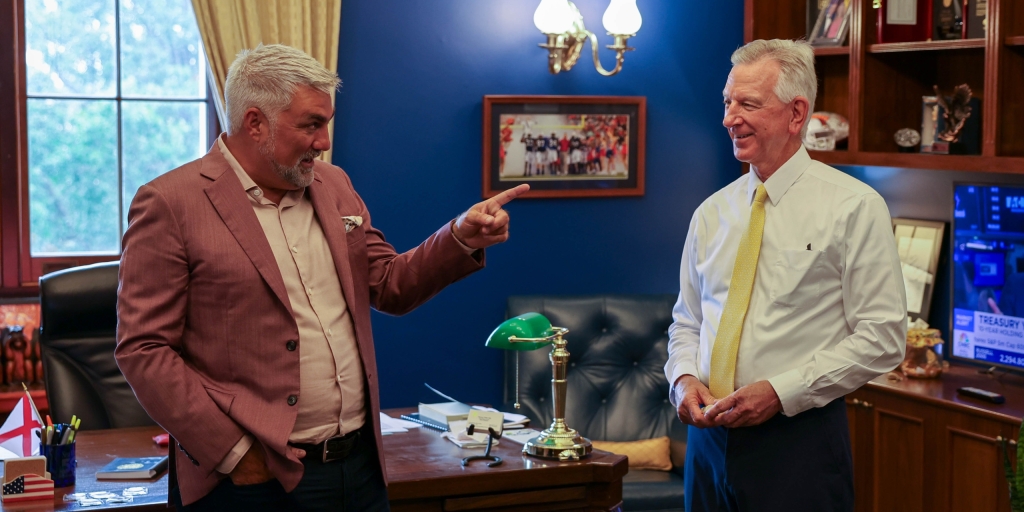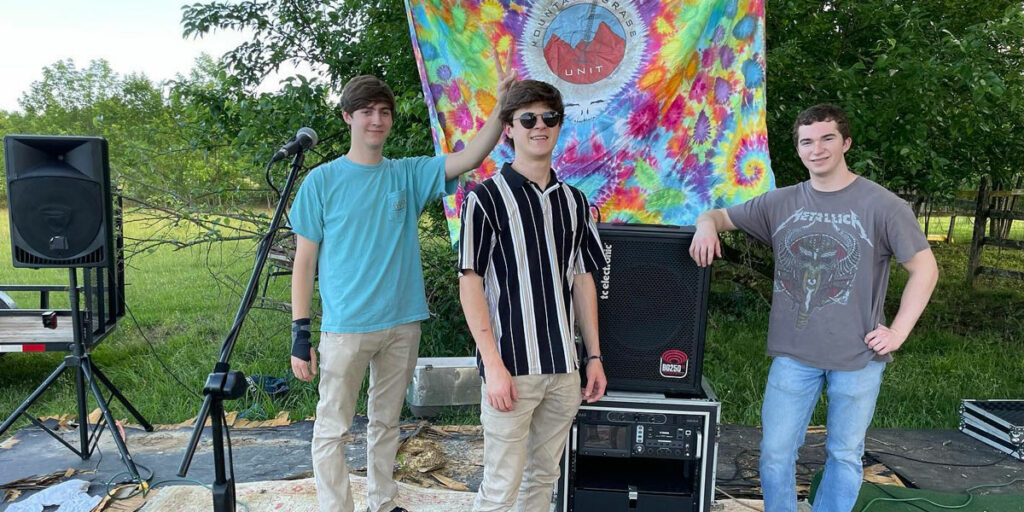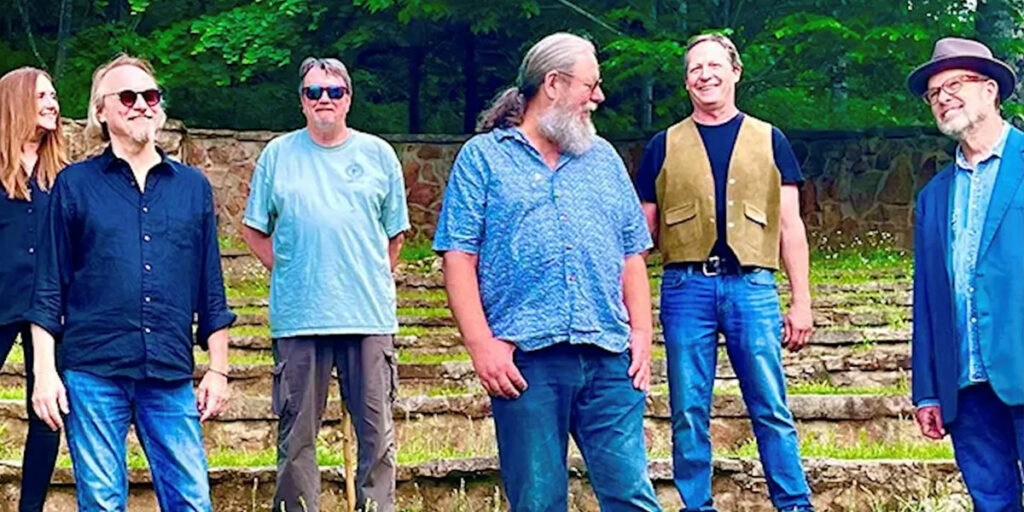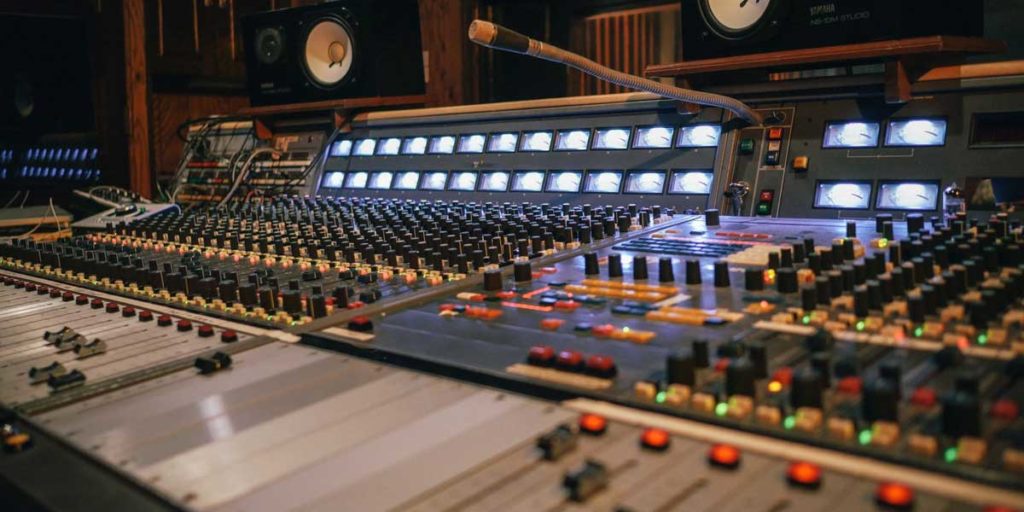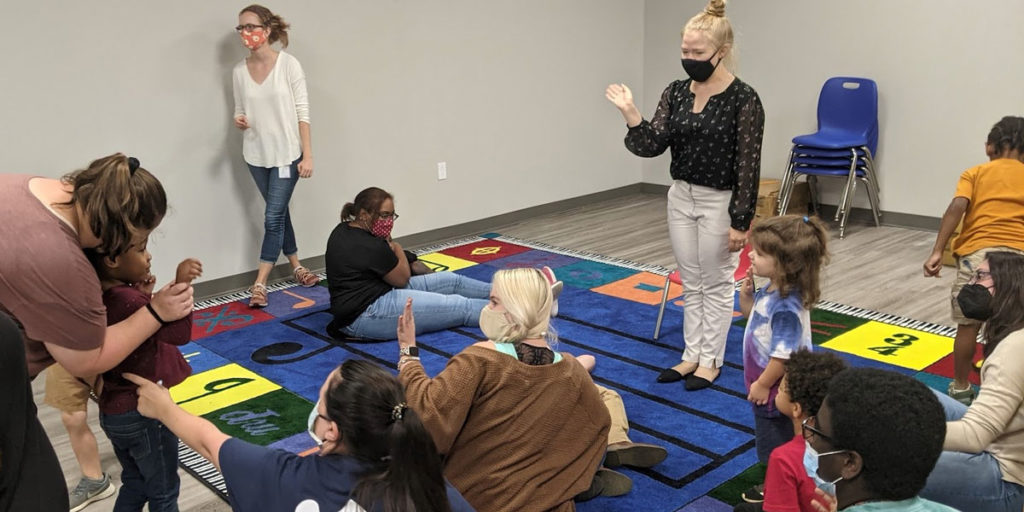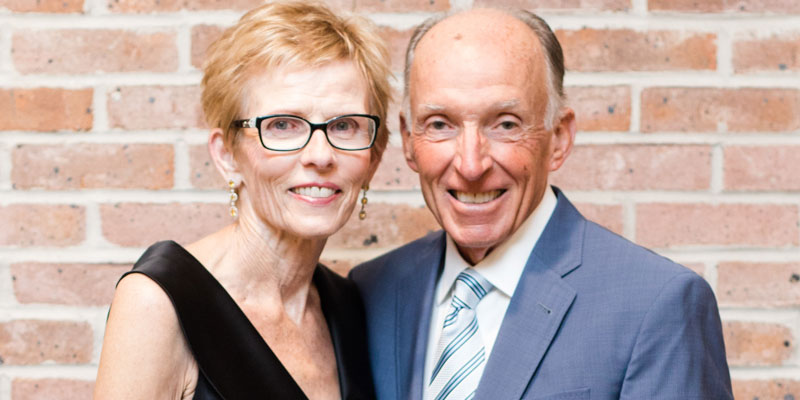Thirteen-year-old Eric Wallace knew, as surely as he needed to breathe, that he needed to make music. He knew that he had to make music.
“For me, that was always, how can I get to my friend’s house who has a drum set? How can I play guitar? How can I get that sound with him playing drums and me playing guitar?” says Wallace, a native of Homewood, a suburb south of Birmingham. “From there, it just grew into how can I get into a van and go on tour? How can I play a show in my city in front of my friends and family?”
What Wallace didn’t know until years later was that music would become much more than just “a fun thing to do on the weekends. … Maybe it was after my life was all about music that I realized my life was all about music,” he says.
For Wallace, now 35, that has meant playing “in 15 bands before I was 20 years old.” National tours with the hardcore band Wildcat Revival. A stint in the rock band the Monitors. Playing lead guitar with his singer/songwriter friend Will Stewart. And now playing in the Blips, a rock ‘n’ roll collective of Birmingham music scene veterans Wallace, Stewart, Wes McDonald, Taylor Hollingsworth and Chris McCauley.
Wallace’s life of music also led him in 2009 to buy the historic Spring Street Firehouse in Avondale, built in 1890, to live in, host do-it-yourself music shows and other events, and teach guitar lessons.
Wallace still revels in the joy music brought to his 13-year-old self and wants to share that feeling with children who live in and around Avondale, a Birmingham community east of downtown. Today, Wallace is launching the Firehouse Community Arts Center, a nonprofit he founded and is executive director of that is the next verse of his musical life.
Wallace is planning music lessons for children from 9 to 18 years old who live in city of Birmingham neighborhoods around the firehouse: South Avondale/Forest Park, North Avondale and East Avondale. With a personal loan, grants and donations, Wallace is renovating the firehouse space and hiring local musicians to teach the children, who will receive scholarship based on family income for lessons.
“We’ve got this great community of musicians here in Birmingham. Most of them are working in restaurants when they’re not on tour or making records,” he says. “Meanwhile, music education programs are often expensive and inaccessible to the people of my community. How can we, through a nonprofit, build up those two aspects of our community and do it at the same time? I think that’s where we’ve landed.”
Wallace hopes to partner with city schools in the three neighborhoods.
“We’ve got a great idea to go into some of those schools with a guitar. We’ll call it Firehouse Firsts. Learn your first chord. Learn how to play your first drumbeat. I’ll be there to show kids the first things about how to play an instrument,” he said.
The nonprofit has a $70,000 goal for its initial fundraising campaign that Wallace says will be used to fund students’ scholarships, pay for an intern from one of the neighborhoods and start paying back on the build-out of the firehouse. Click here to donate.
‘Make all the noise you want to’
A building next door will be converted into a recording studio and a hallway will connect it to the firehouse. The firehouse will have three small lesson rooms for one-on-one sessions and two fully equipped rooms with drums, amplifiers for guitars and bass, keyboards and a PA system and soundproof walls “where you can go and make all the noise you want to,” Wallace says. “We’re really excited about it.”
And, of course, there is the downstairs venue that Wallace and friends in the music community created after he bought the firehouse. Wallace bought it at a time Avondale, founded in 1887 as a company town built around Avondale Mills, had suffered decades of decline.
The building, which is listed on the National Register of Historic Places, was built as a firehouse for the Avondale Fire Department but did not serve that purpose for very long, says Wallace, who has researched its history. He learned the firehouse was a garment warehouse in the 1940s and home to Genry’s Barber Shop not long before he bought the building. Wallace heard from the locals other lore that may or may not be true about the building.
“I had an old fellow from the neighborhood who said he lived there,” he says. “Another one said he thought it was a brothel at some point, but none of that has been corroborated.”
What can be corroborated is the building’s history that Wallace created.
Having grown up playing in places like the beloved Cave 9, a volunteer-run venue that hosted all-ages shows but closed in 2009, Wallace thought he could do something similar at the firehouse.
“Cave 9 was so inspiring, to see other people expressing themselves, to see a real outlet for yourself as a young aspiring musician or artist,” he says. “That was the time that void, with Cave 9 closing, was created. I owned the building, there was no landlord to get mad. At that time there were no neighbors.”
So began all-ages music shows, standup comedy, art shows and other community events that continued until March, when COVID-19 forced the venue to shut down.
During the decade-plus since Wallace bought the firehouse, the surrounding area has blossomed with the addition of a brewery, restaurants, bars and entertainment venues, driving up the value of his property. A business district that was a ghost town transformed into one of Birmingham’s hottest areas.
“A lot of people think I’m some kind of real estate genius,” he says. “I’m not. But also implying that I’m lucky would also imply that the goal was to make a million dollars. I would love to make a million dollars, but that’s never been the goal here.”
Wallace figured out the goal as he grew more settled in his new community.
“Having this space, really to me at that time, was all about me and all about consolidating my life and the things that I love and the things that I wanted to work with,” Wallace says.
Fitting into the area
As he got to know the community, Wallace began thinking less about himself and more about how he and his building fit into the area.
“That’s been the driving force behind starting the nonprofit, making this space a safe place where we can move forward as a member of the community with the community’s voices behind us and do what I think is the really, really important job servicing the kids of these three neighborhoods who haven’t had that opportunity that I did when I was 13, the ‘endless possibility’ feeling of playing music with your friend,” he says. “That’s what this space is for.”
Wallace wants neighborhood students to experience that feeling of endless possibility, not just with music, but with life. He says one of the program’s goals is to help students build empathy toward others in the community.
“When you live in such a diverse neighborhood and such a diverse community, having a space where you can meet your neighbors and understand what their daily life is like is such a valuable experience for our city and our neighborhood and our community as a whole.”
Wallace also believes music can instill children with self-confidence. “Not everybody is great at sports. When you learn music, you can often find some things inside yourself that you might not have known were there,” he says. “Picking up the guitar and being able to be good at it is a whole different set of skills than you learned joining the basketball team or the baseball team, and that can be a really valuable experience for young people.”
Wallace himself hopes for something beyond the endless possibility he felt as a 13-year-old chasing that magic sound.
“To me, the feeling that you’ve created something that you’re proud of is the ultimate success. I hope to have 60 students in here within a year’s time that are all defining success in different ways and are all experiencing success,” he says.
“That’ll feel like success.”
To learn more about the Firehouse Community Arts Center or how to donate a gently used musical instrument, click here.
(Courtesy of Alabama NewsCenter)




